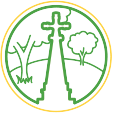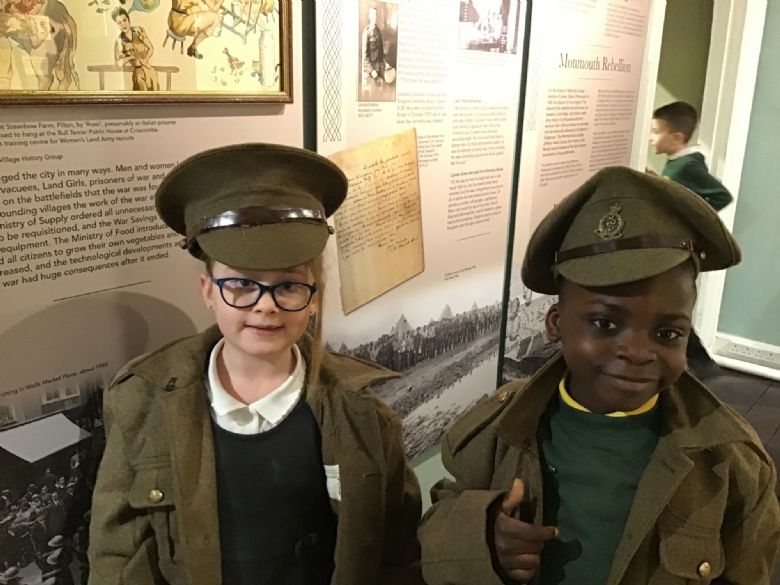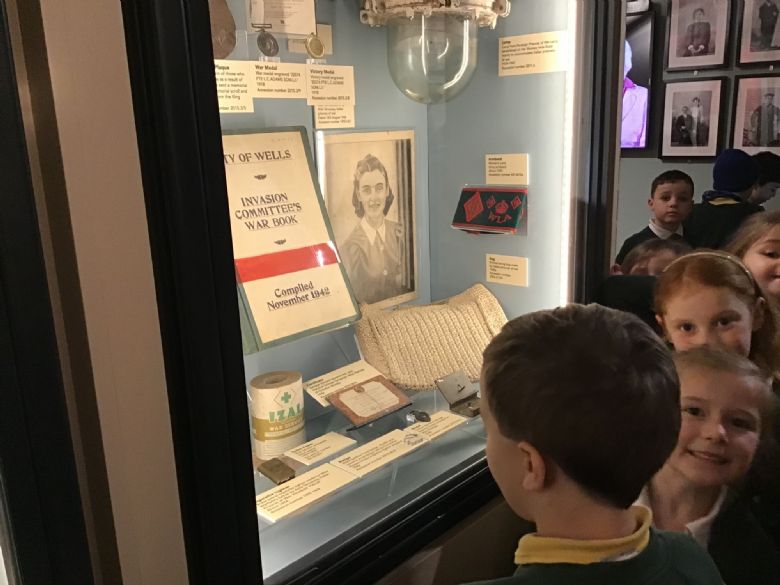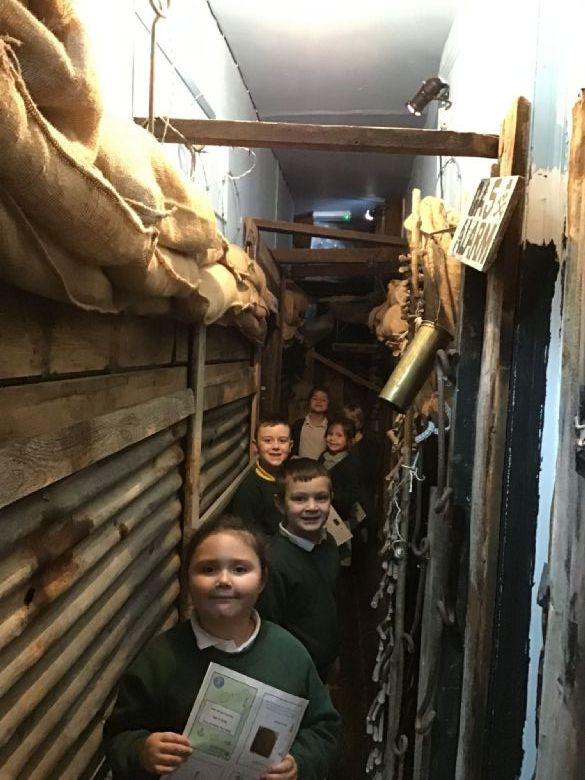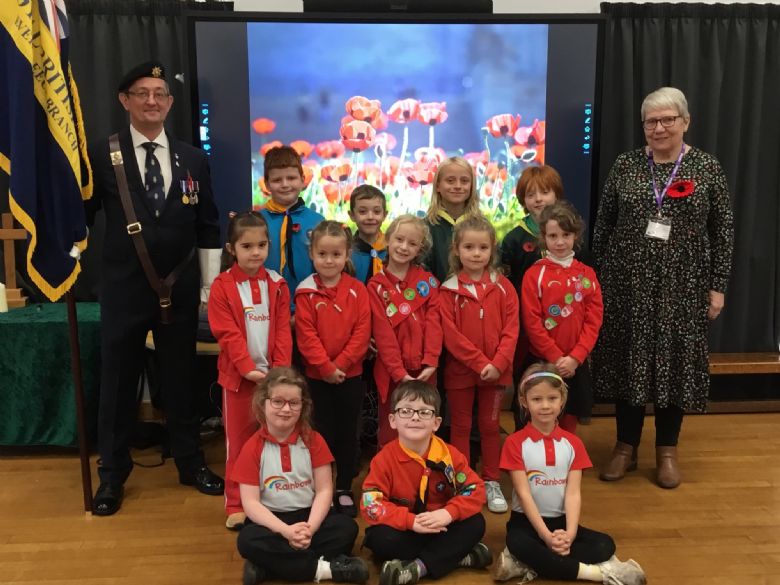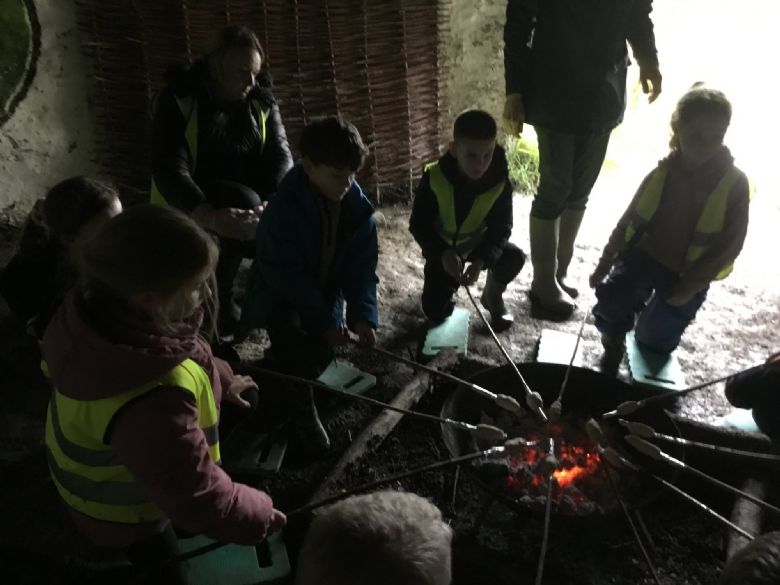History
Aims of the Primary National Curriculum for History
All children will:
Know and understand the history of these islands as a coherent, chronological narrative, from the earliest times to the present day: how people’s lives have shaped this nation and how Britain has influenced and been influenced by the wider world.
Know and understand significant aspects of the history of the wider world: the nature of ancient civilisations; the expansion and dissolution of empires; characteristic features of past non-European societies; achievements and follies of mankind.
Gain and deploy a historically grounded understanding of abstract terms such as ‘empire’, ‘civilisation’, ‘parliament’ and ‘peasantry’.
Understand historical concepts such as continuity and change, cause and consequence, similarity, difference and significance, and use them to make connections, draw contrasts, analyse trends, frame historically valid questions and create their own structured accounts, including written narratives and analyses.
Understand the methods of historical enquiry, including how evidence is used rigorously to make historical claims, and discern how and why contrasting arguments and interpretations of the past have been constructed History – key stages 1 and 2.
Gain historical perspective by placing their growing knowledge into different contexts, understanding the connections between local, regional, national and international history; between cultural, economic, military, political, religious and social history; and between short- and long-term timescales.
Source: National Curriculum September 2013
Our long-term curriculum overview:
Long Term History Overview for Evercreech CofE Primary![]()
2024-2025
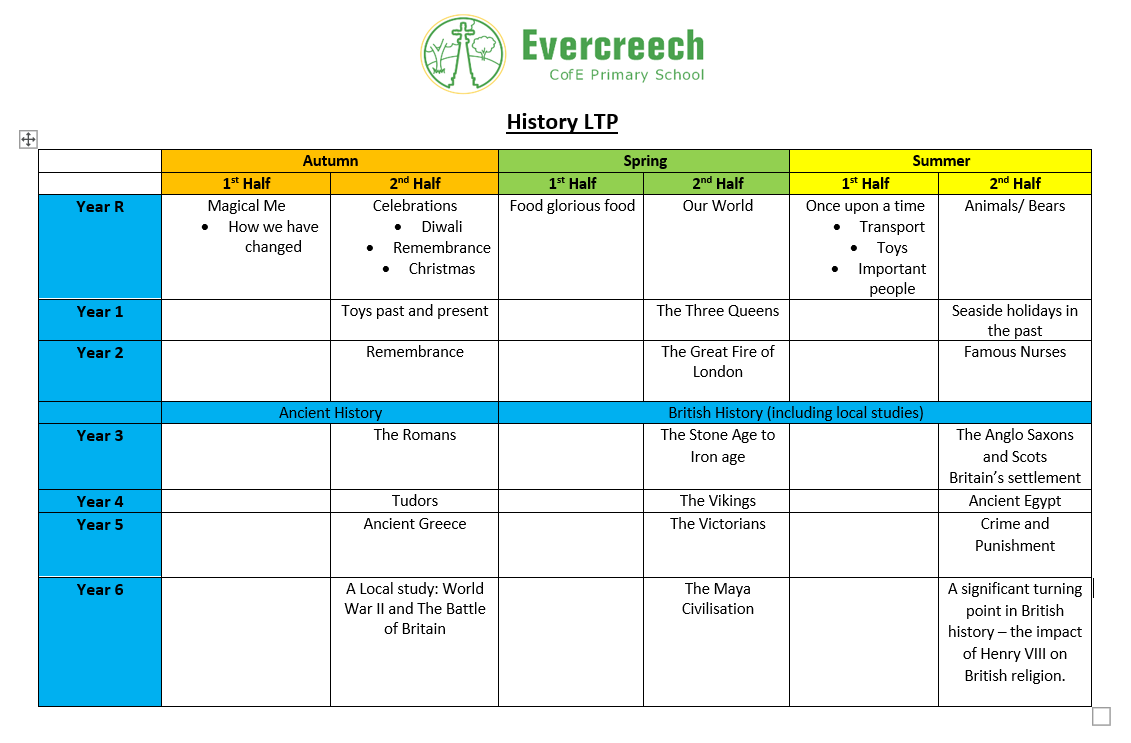
2025-2026
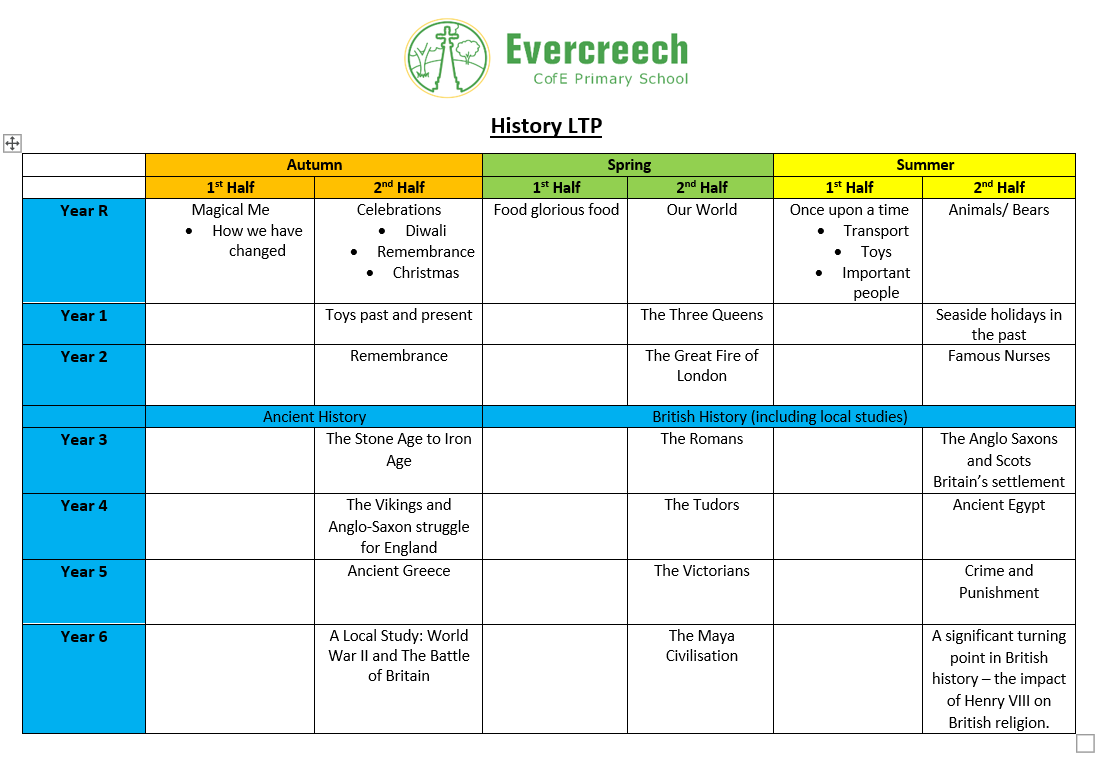
Progression of skills
|
|
Skills developed by the end of KS1:
Skills developed by the end of KS2:
|
Curriculum Intent - September 2024
- Ensuring our children have access to a high-quality history curriculum that is both challenging and enjoyable.
- Providing quality first teaching to all learners.
- Providing opportunities for children to recall concepts and facts through regular questioning and quizzes.
- Exposure to high-level questioning and thinking in lessons.
- Involving our pupils in a variety of additional historical learning opportunities to encourage a love of learning.
- Looking into the past and having different opportunities to expand their knowledge and to create a timeline of historical events.
- Use photographs, images, artefacts and timelines to explore different areas of the past.
- Ensuring our pupils are confident historians, so they can recall knowledge of the past.
- Fully developing independent learners with inquisitive minds and an interest in self-improvement.
- Having high expectations of all learners to achieve the requirements set out in the National Curriculum.
